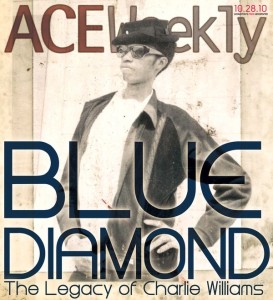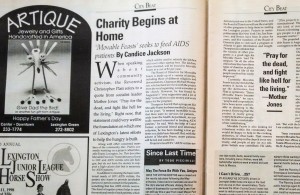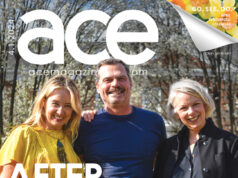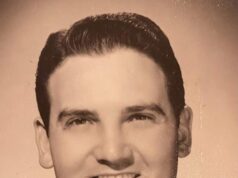THE KITCHEN IS STILL OPEN:
Moveable Feast Lexington celebrates fifteen years of delivering meals and saving lives
By Bianca Spriggs



In the United States, where almost half of our food is literally thrown out everyday nationwide, one demographic exists that is especially susceptible to starvation: people living with HIV/AIDS. Even here in Kentucky, a state celebrated for its culinary spectrum, the late African American artist, Charles Williams, died in 1998, not because he’d been living with the virus, but due to starvation. Williams, born in Blue Diamond Kentucky, created a vast body of diverse work making a significant impact on the local art community. Williams lived and died in downtown Lexington, just a few blocks from City Hall.
Later that year, Williams’s needless death motivated the late Michael Thompson, a beloved arts enthusiast and well-known HIV/AIDS activist, along with Carol Farmer, to deliver leftover food from local restaurants to people they knew in similar need. With the help of other friends and activists along with the Episcopal Aids Ministry, Moveable Feast Lexington (MFL) was born. Fifteen years later, MFL continues to deliver hot, freshly prepared, nutritious meals five days a week out of their kitchen on the corner of Fifth Street and Silver Maple Way to people living with HIV/AIDS related illnesses and patients of the Hospice of the Bluegrass, as well as caregivers and dependents living in the home at no cost. Serving the Lexington/Fayette County area, MFL modifies menus to accommodate clients with specific nutritional needs related to pharmaceutical side-effects. Clients are served without regard to race, sexual orientation, political affiliation, or national origin.
“To this day, there is a sense of urgency when people ask for services from Moveable Feast,” says artist and board member, Bob Morgan, “They are the poorest of the poor and the most desperate of the desperate.” Yet, Morgan takes pride in the fact that MFL is not bogged down in bureaucracy, “If you call up and say ‘I need food,’ you will have a delivery that night. Before they’ve even met you or know anything about you—that’s refreshing that there’s still that feeling of activism—all you have to do is give them an address.”
Director, Terry Mullins, concurs, “We’re the only organization that goes to the homes on a daily basis—we know if their health is improving or if in they’re in bad situations.” Dan Wilkins, a current client, would have been forced to leave Lexington, his home for decades, to live with family out-of-state were it not for the financial relief MFL provides. He realizes that MFL offers unique services because HIV/AIDS continues to be viewed as a limited population, “I think unless somebody knows somebody, they’re not really strongly motivated to work with that group. It’s the same with cancer. If you have been impacted by it, you’re going to have more interest. Folks who are HIV positive are less likely to share that with other people, so others don’t realize how impacted they are by it.”



Kellie Considine, Board Treasurer and driver for MFL, knows that fighting stigma and lingering ignorance surrounding HIV/AIDS can seem like an uphill battle. She prefers to address the bottom line, “You save $41,000 a year if you prevent hospitalization—it’s preventable by people maintaining their health. The cost benefit is huge but people don’t think about that when they’re judging us. They just think we’re bringing food to a bunch of HIV people. It’s so much more than that.” For instance, a healthy diet is a major factor that can help prevent malnutrition which may lead to hospitalization or death due to cachexia, or “wasting syndrome.” A combination of fatigue, loss of appetite, involuntary weight loss, loss of muscle and skeletal mass—“wasting syndrome” results in the loss of body mass that cannot be restored or reversed by nutritional means alone. In combination with the underlying condition, “wasting syndrome” multiplies the chances of premature death.
In April 2014, MFL served 114.5 meals a day. Approximately thirty-five volunteers willing to make deliveries throughout the week use their own vehicles and pay for their own gas money to ensure that Moveable Feast Lexington remains a priority. Thus, volunteers learn how their service makes a real-time impact in that they are literally helping to save lives. Artist and board member, John Ridener says, “It’s not for everybody…but it’s very gratifying if you can do it. Volunteering makes you put your life in perspective. Sometimes you need that.”
Lexington/Fayette County alone has the second highest rate of HIV/AIDS in the state, second only to Louisville/Jefferson County. The need for an organization like MFL becomes especially clear when looking at the statistics of increasingly disproportionate populations within the city, particularly among women, African American, and Hispanic groups. One roadblock MFL constantly faces is a culture of silence in certain communities where the risk of HIV/AIDS and safe sex practices are not discussed openly. Now, thanks to a grant by the CDC, Moveable Feast Lexington offers the services of in-home counseling and testing for HIV for individuals who may require additional privacy.
Despite the rising numbers of individuals in need of their services, MFL continues to keep costs low by only employing three staff members. Each meal totals less than $2 for both food and packaging. Costing approximately $15,000 to make thousands of meals a month, MFL continues to rely on contributions from the community to ensure that no one needlessly goes hungry. Without the compassion of committed staff, board members, and volunteers, the mission of MFL would not be possible, leaving more than a hundred clients a day without access to not only a meal, but in some cases, the only contact someone receives all day from the outside world.
For a look back at what Ace wrote about Movable Feast in 1998, click here.
This article also appears on page 4 of the June 5, 2014 print issue of Ace.
Subscribe to the Ace e-dition for Lexington news, arts, culture, and entertainment, delivered to your inbox every Thursday morning.















